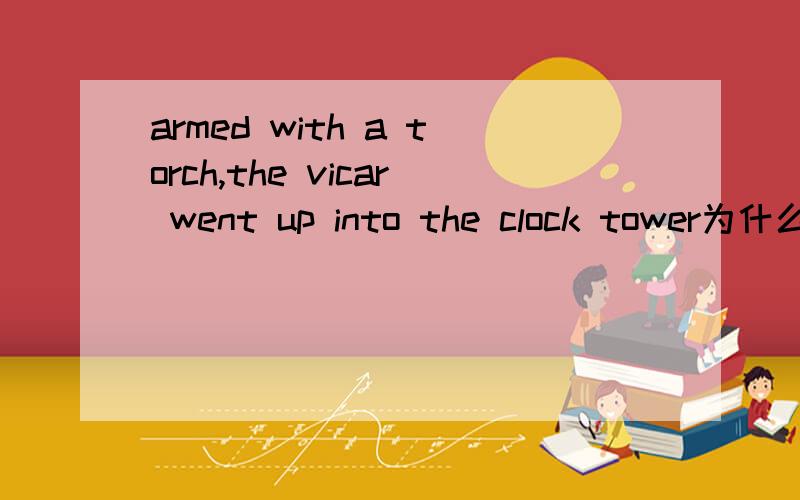armed with a torch,the vicar went up into the clock tower为什么说不要把armed当成是做伴随状语而是当成表示状态的形容词?
来源:学生作业帮助网 编辑:作业帮 时间:2024/11/20 19:30:40

armed with a torch,the vicar went up into the clock tower为什么说不要把armed当成是做伴随状语而是当成表示状态的形容词?
armed with a torch,the vicar went up into the clock tower为什么说不要把armed当成是做伴随状语
而是当成表示状态的形容词?
armed with a torch,the vicar went up into the clock tower为什么说不要把armed当成是做伴随状语而是当成表示状态的形容词?
Answer: 不能看作是伴随状语,如果看成是伴随状语,那么这里应该是非谓语动词的过去分词形式作伴随状语,但"armed"这里不是过去分词,而是形容词.
理由如下:
(1)Sb be armed with sth 固定搭配 译:某人装备/拿着某物
它是"be+形容词+介词短语"结构
这里"armed"是形容词,不是非谓语动词的过去分词形式,也就不存在非谓语动词做状语一说.如果硬要理解成非谓动词短语作状语,也应该是如下形式:
Being armed with a torch, the vicar went up into the clock tower.
(即把be动词变成非谓语动词,又因和主句中的主语是主动关系,故用了现在分词"Being"形式)
拿"surprised"为例
(1)I am surprised at the reason < surprised 形容词>
我对这个理由很吃惊
(2)I am surprised by what he said.
他所说的话让我感到惊讶.
If you still feel confused,leave a message please
祝 学习进步!
如果是伴随状语的话 常用动词ing 形式 如果Lz正在上高中(这好像是新概念第三册的句子) 最好把它当作非谓语